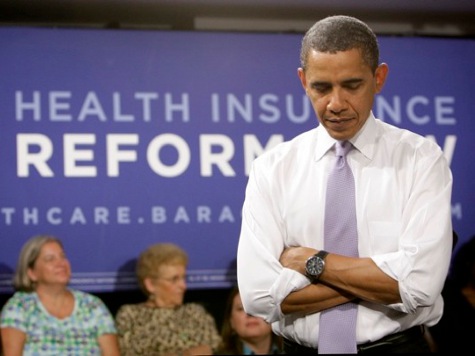
In the way America “used” to be, the better biomedical technology we had, the more Americans could live longer, healthier lives. However, in the world of Obamacare and the “new” normal, health ingenuity will be too costly for everyone except the wealthy.
According to a recent study by the Journal of the American Medical Association (JAMA), the number of knee replacements paid for by Medicare has more than doubled over the past 20 years. In 2010, 243,802 Medicare recipients underwent knee replacements, up from 93,230 in 1991. According to the study, demand for the popular surgery, which costs approximately $15,000 per replacement, could reach $3.5 million annually by the year 2030.
“There’s no doubt this is a successful operation,” said Joseph Zuckerman, chairman of the orthopedic surgery department at the New York University Hospital for Joint Diseases. Zuckerman added that more older people want the procedure so they can remain active or improve the quality of their lives. Further, the introduction of better quality devices has allowed more people — even those who have not yet reached their senior years — to obtain the surgery.
Nevertheless, Peter Cram, a health-policy researcher at the University of Iowa-Carver College of Medicine, who contributed to the study, said, “Ultimately, there’s going to be [only] some number of these we can afford.” According to Cram, the decision on who gets knee replacement surgery and who is rejected will be a “really contentious debate.”
Studies of this nature will likely be used to support the “necessity” of the ObamaCare Independent Payment Advisory Board (IPAB), the group of unelected officials who will be responsible for handing down the “rules” to physicians about who gets the knee surgery and who does not. The IPAB will, indeed, be in charge of “rationing” knee replacement surgery and other treatments and procedures, as well.
In addition, it is essential to understand the effects of the $716 billion that ObamaCare takes from Medicare to give to Medicaid. This money will be removed from Medicare in the form of payments to Medicare physicians and other providers, who, by the end of this decade, will end up being paid less than Medicaid providers. If ObamaCare is allowed to move forward, older Medicare recipients will be less likely to obtain the types of surgeries, such as knee replacements, and treatments they need because of both the IPAB rationing rules and the fact that more physicians will reject Medicare patients. This will leave a system where only wealthy seniors will be able to afford high-quality healthcare.
According to the Weekly Standard, just fifteen minutes of the first presidential debate are devoted to healthcare. This could be the most important fifteen minutes in the lives of all Americans, and it is Mitt Romney’s chance to tell the world what life will be like under fully-implemented ObamaCare — a life that could begin in about 35 days, if we are not aware.

COMMENTS
Please let us know if you're having issues with commenting.